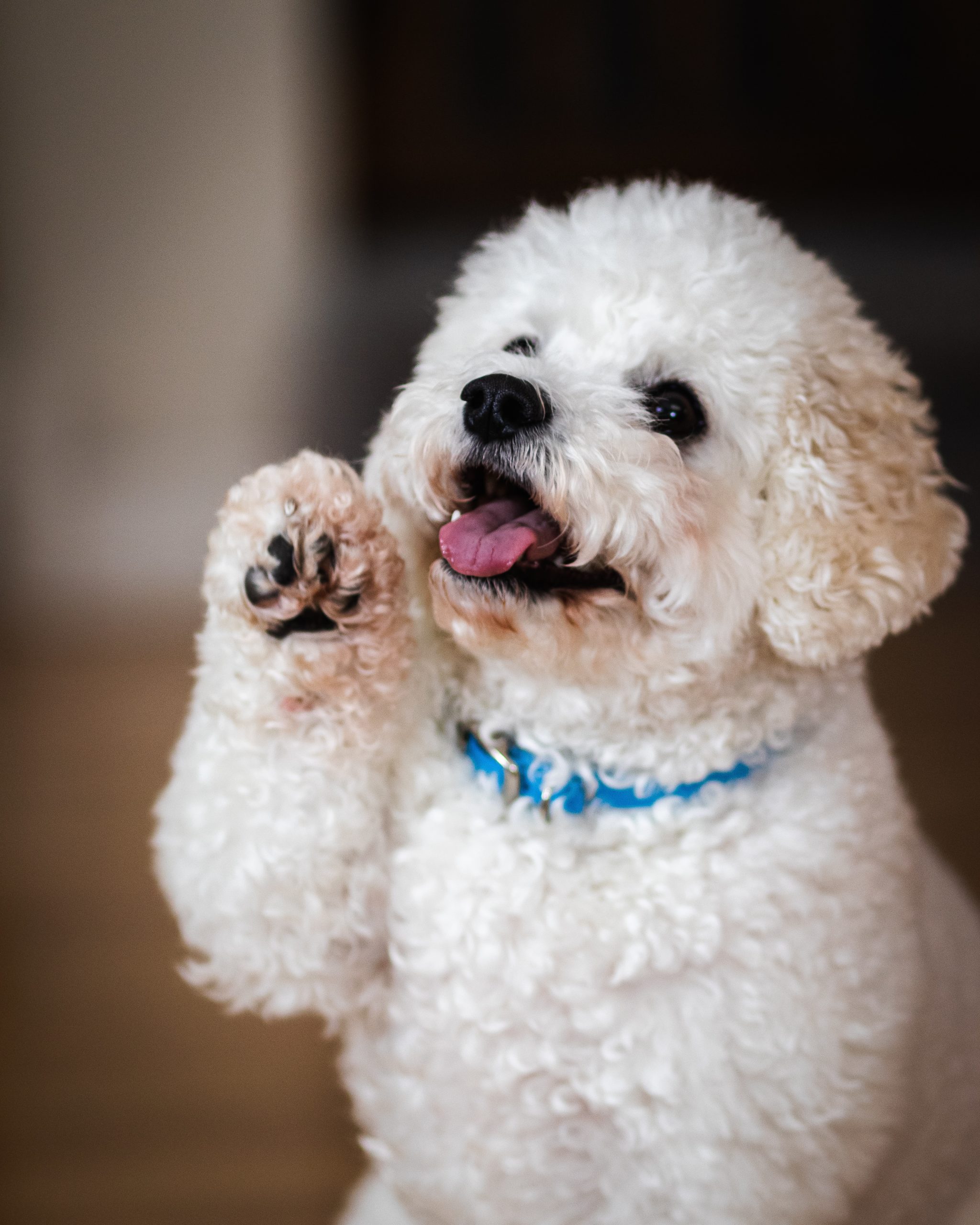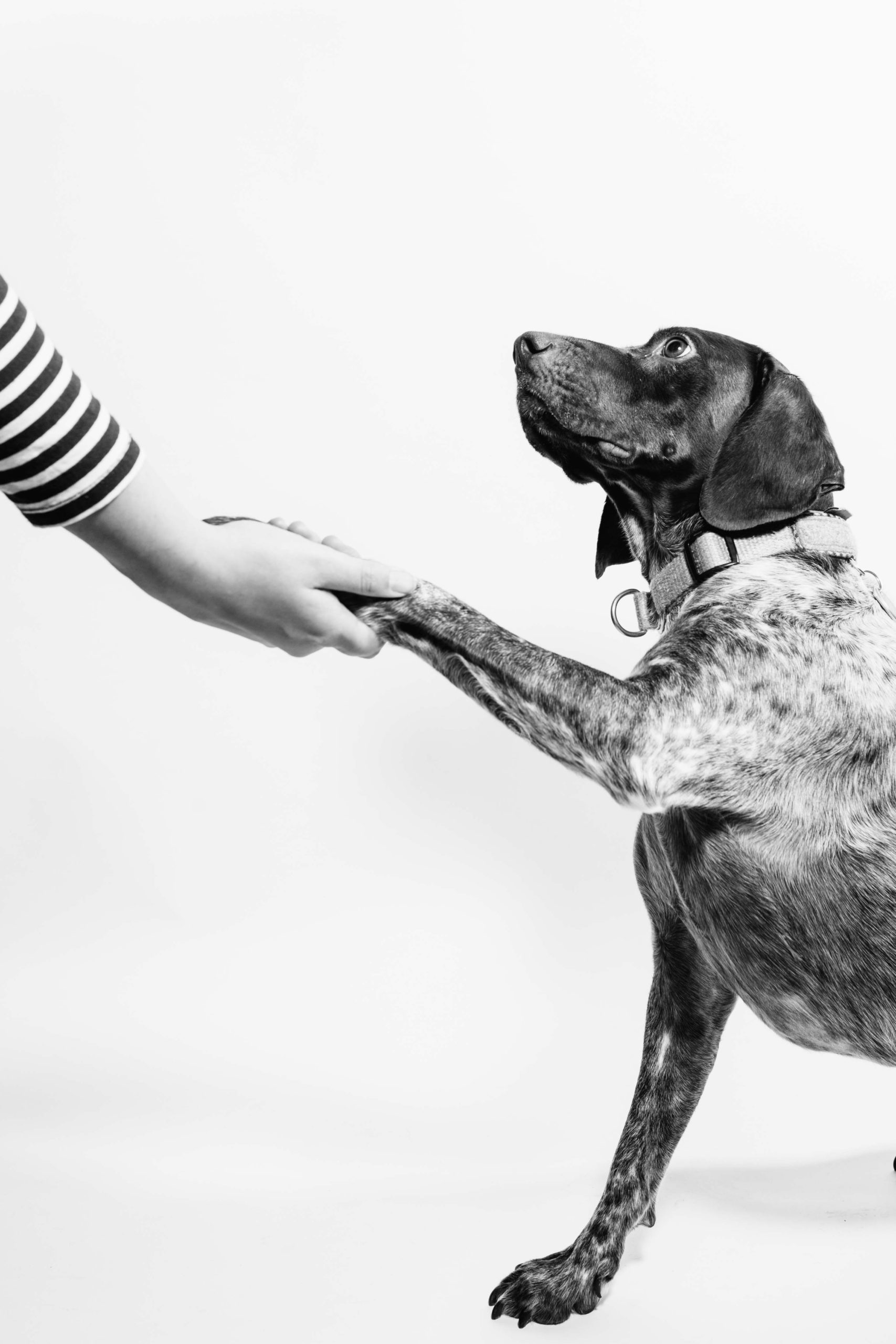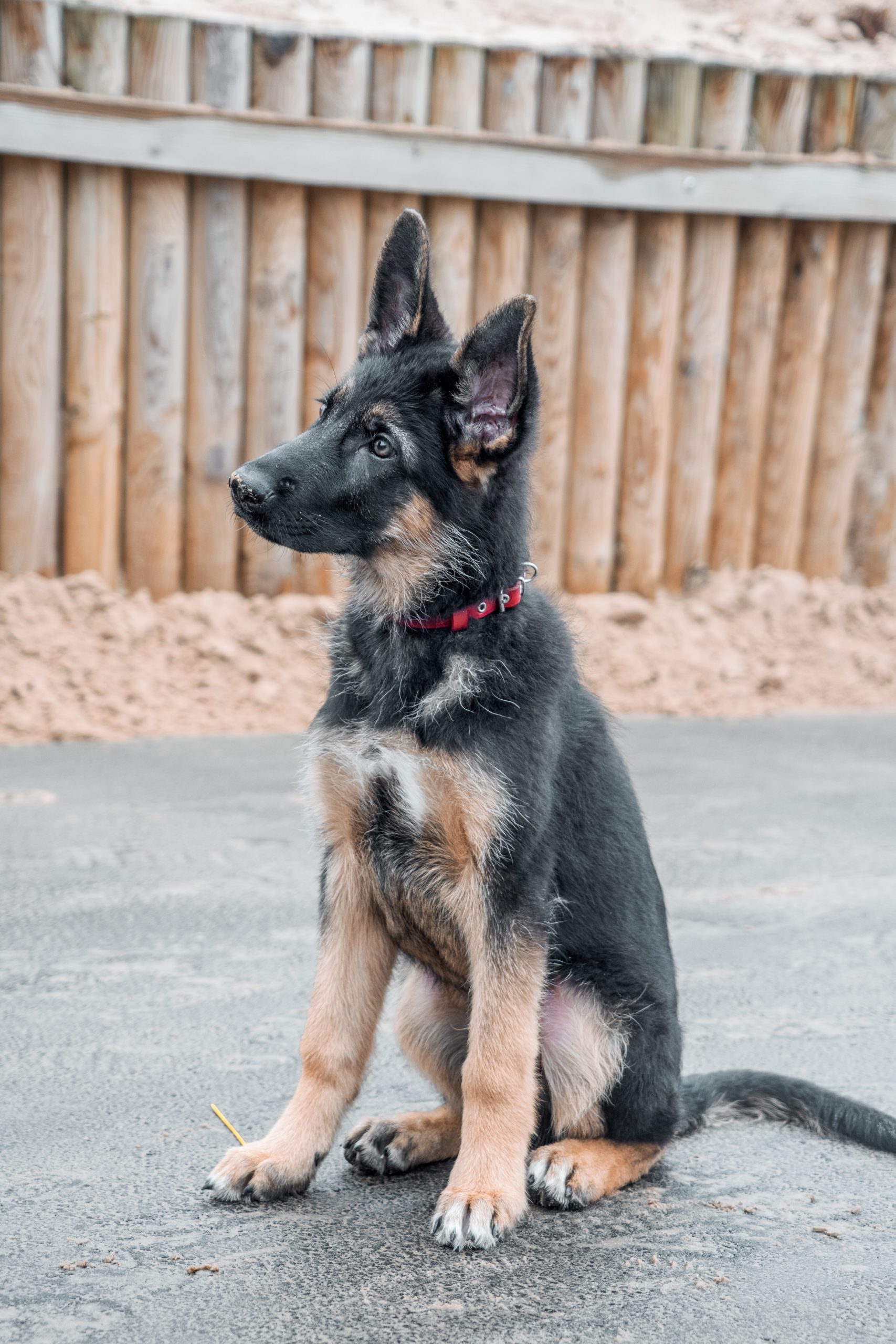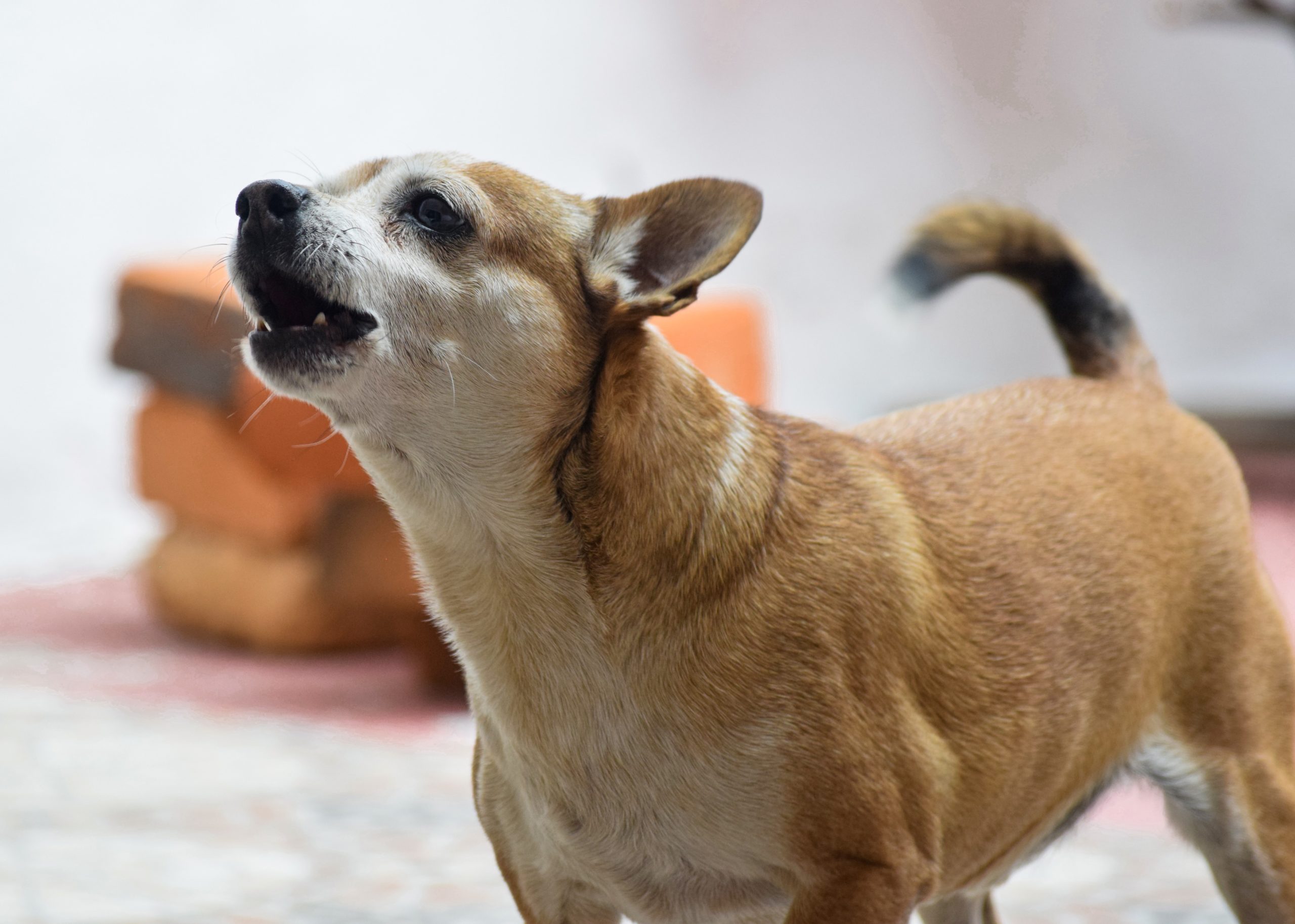Looking for a small dog breed like a Yorkshire Terrier, Bichon Frise, or Standard Schnauzer that won’t leave you covered in fur? Well, you’re in luck!
Small dog breeds like these puppies that don’t shed are the perfect choice for those seeking a low-maintenance and allergy-friendly companion. With hair instead of fur, these little dogs shed less and produce fewer allergens, making them ideal for people with sensitivities. But it doesn’t stop there!
These adorable pups come in various sizes, temperaments, and coat types, ensuring there’s a perfect match for everyone.
Whether you prefer a miniature pooch or a lively tail-wagger, shedding dog breeds like Yorkshire Terriers, Bichon Frises, and Standard Schnauzers have got you covered. Plus, with their minimal grooming needs and occasional brushing, these small dogs require little care but offer heaps of love.
So why wait? Let’s dive into the wonderful world of non-shedding small dog breeds like Yorkshire Terriers, Bichon Frises, and Standard Schnauzers!
Shih Tzu: A Small Dog Breed That Doesn’t Shed:
The Shih Tzu is a small companion breed that has become increasingly popular among dog lovers. One of the most appealing qualities of this breed is its luxurious long hair, which is perfect for those who appreciate a fluffy coat. This makes the Shih Tzu an excellent choice for individuals who are looking for a small dog breed like the miniature schnauzer, bichon frise, or yorkshire terrier that doesn’t leave a trail of fur behind.
One of the reasons why miniature schnauzers, terriers, and Shih Tzus don’t shed much is because they have hypoallergenic coats. This means that they produce fewer allergens compared to other breeds, making them suitable for people with allergies or sensitivities. If you’ve always wanted puppies or pups but couldn’t due to allergies, the miniature schnauzer, terrier, or Shih Tzu might be the perfect solution for you.
However, it’s important to note that while Shih Tzus, a toy breed, don’t shed as much as other dogs, their long and silky hair requires regular grooming to keep it healthy and tangle-free. As an owner of this shedding breed, you’ll need to dedicate time and effort into maintaining their coat. Regular brushing will help prevent matting and tangling, ensuring your Shih Tzu, a terrier, looks beautiful at all times.
In addition to grooming, there are a few other things you should know about owning a Shih Tzu, a shedding dog breed. Firstly, they are known for being incredibly affectionate and loyal companions. They thrive on human interaction and love being part of the family. So if you’re looking for a four-legged friend who will always be by your side, a Shih Tzu, a terrier breed, might just be the perfect fit. Keep in mind that they have dog hair, unlike hairless dogs.
Furthermore, it’s worth mentioning that Shih Tzus, a small terrier breed, have big personalities! They are often described as lively and outgoing dogs who enjoy being the center of attention. Their playful nature makes them great companions for both children and adults alike. Additionally, Shih Tzus are known for being shedding breed puppies that many people adore.
Shih Tzus, a popular breed of shedding dog, don’t require as much physical activity as larger breeds. A daily walk and some indoor playtime should suffice to keep these puppies happy and healthy. However, it’s crucial not to overexert them, especially in hot weather, as their flat faces can make breathing difficult. Additionally, unlike hairless dogs, Shih Tzus have a thick coat that requires regular grooming to manage their dog hair.
West Highland White Terrier (Westie): Another Non-Shedding Small Dog Breed:
The West Highland White Terrier, also known as the Westie, is a delightful small dog breed that doesn’t shed excessively. These adorable little puppies have a double coat which helps keep shedding to a minimum.
However, it’s important to note that their wiry outer coat requires regular brushing to prevent matting and maintain its texture. If you’re interested in getting a Westie, check out the AKC Marketplace for advertisements on available puppies.
Despite their small size, Westies are known for their lively nature and spunky personality. They make excellent companions for individuals or families looking for a low-maintenance pet. Whether it’s their bold and confident demeanor or their adorable puppies, Westies are sure to capture your heart. Don’t let concerns about dog hair hold you back – these furry friends are worth every bit of love and attention. So why wait? Check out our advertisement for Westie puppies now!
One of the standout features of the West Highland White Terrier is its distinctive white coat. Their beautiful white coats not only make them stand out in a crowd but also add to their charm. It’s worth mentioning that maintaining the pristine appearance of their white coats does require some effort on the part of owners.
Regular grooming sessions, including brushing, will help keep their fur clean and free from dirt or stains. This is especially important for owners who want to advertise their puppies’ appearance. So, don’t forget to brush your puppies’ coats regularly to keep them looking their best from front to back.
If you’re considering adding a non-shedding small dog breed to your family, there are other options besides the Westie puppies that you might want to explore.
- Scottish Terrier puppies, also known as Scotties, have a dense double coat that requires regular brushing to minimize shedding. When reading this advertisement, remember to brush your new puppy regularly.
- Yorkshire Terrier: Yorkies, also known as puppies, have long silky hair that resembles human hair rather than fur. They shed very little, making them a great choice for those who want a low-maintenance pet. If you’re interested in getting a Yorkshire Terrier, don’t forget to brush their hair regularly to keep it looking its best. And now, a quick advertisement break before we continue reading.
- Kerry Blue Terrier: These puppies have soft wavy hair instead of fur, making them another low-shedding option. If you are interested in getting a Kerry Blue Terrier, check out the AKC Marketplace for advertisements. Start reading about this breed today!
- Portuguese Water Dogs, also known as puppies, are a great choice for those who love reading advertisements on the AKC Marketplace. Despite being larger than other breeds on this list, Portuguese Water Dogs have curly non-shedding coats.
Each of these breeds has its own unique characteristics and traits that make them suitable for different types of households. Whether you’re looking for a playful companion or an active partner for outdoor adventures, there’s a non-shedding small dog breed out there that will fit your lifestyle.
When searching for the perfect non-shedding small dog breed, consider checking out the AKC Marketplace. With its wide selection of breeds and reputable breeders, you’ll find the ideal furry friend to join your family. Don’t forget to do some reading on each breed to ensure it aligns with your preferences and needs.
Bolognese: A Small Dog Breed That Doesn’t Shed
The Bolognese is a small Italian breed known for its non-shedding white coat. This toy breed is perfect for those looking for a small dog that won’t leave hair all over the house. With their adorable curly hair, Bolognese dogs are not only low-shedding but also have a big personality to match. If you’re interested in getting a Bolognese, check out the AKC Marketplace for advertisements and start reading up on this charming breed.
Regular grooming is essential for the Bolognese’s coat, ensuring it looks neat and tidy. Brushing their double coat at least once or twice a week prevents matting and tangling. Some owners opt for a shorter “puppy cut” to make grooming more manageable. Occasional stripping maintains the texture and health of their coat. Grooming is crucial for the Bolognese’s appearance and overall well-being, so make it a priority!
In terms of temperament, the Bolognese is an intelligent and affectionate companion. They form strong bonds with their owners and thrive on human interaction. Despite their small size, these dogs have a confident demeanor and are often described as being lively and alert.
One of the great advantages of the Bolognese breed is its adaptability. Whether you live in an apartment or have a spacious home with a backyard, this breed can adjust well to various living environments. They are generally content as long as they receive regular exercise and mental stimulation through playtime or short walks.
If you’re considering other non-shedding small dog breeds similar to the Bolognese, there are a few options worth exploring:
- Lagotto Romagnolo: Known for its curly coat that doesn’t shed excessively, this Italian breed is also highly intelligent and trainable.
- Brussels Griffon: With its distinctive facial expression and wiry coat, this small dog breed doesn’t shed much either.
- Maltese: These adorable little dogs have silky hair that doesn’t shed heavily but requires regular grooming to prevent matting.
Chinese Crested: A Unique Non-Shedding Small Dog Breed
The Chinese Crested is an ancient breed that offers a unique option for those seeking small dog breeds that don’t shed. This charming companion comes in two varieties: the Hairless and the Powderpuff. While both varieties have minimal shedding, they require specific care to ensure their well-being.
Two Varieties with Minimal Shedding
The Hairless variety of the Chinese Crested lives up to its name, as it possesses little to no hair on its body. This lack of fur means that shedding is kept to a minimum. However, due to their exposed skin areas, these dogs may require extra attention. Regular bathing and moisturizing are essential to keep their skin healthy and protected.
On the other hand, the Powderpuff variety has a coat consisting of soft, silky hair. Although they have more hair than their Hairless counterparts, they still shed minimally. Regular grooming is necessary for Powderpuffs to prevent matting and tangling of their long locks. Brushing and combing their fur will help maintain its beauty while keeping shedding at bay.
Lively Companions That Crave Attention
Chinese Cresteds are known for being lively companions who thrive on human interaction. They love being at the center of attention and make it clear with their playful nature and affectionate demeanor. Whether you’re looking for a lapdog or an energetic playmate, this breed can fit your lifestyle perfectly.
Their friendly disposition makes them great family pets as well. They enjoy spending time with children and get along well with other animals too. The Chinese Crested’s sociable nature ensures that they bring joy and laughter into any household they become a part of.
Care Considerations for Chinese Cresteds
When welcoming a Chinese Crested into your home, it’s important to understand their specific care needs beyond grooming routines:
- Skincare: Due to their exposed skin, Chinese Cresteds are more susceptible to sunburn and dryness. Applying dog-friendly sunscreen and moisturizers will help protect their delicate skin.
- Dental Hygiene: Like many small dog breeds, Chinese Cresteds are prone to dental issues. Regular teeth brushing and professional cleanings can prevent periodontal diseases.
- Exercise: Despite their small size, Chinese Cresteds have moderate exercise needs. Daily walks and playtime in a secure area will keep them physically fit and mentally stimulated.
- Training: These intelligent dogs respond well to positive reinforcement training methods. Consistency, patience, and rewards-based training techniques will yield the best results.
Poodle: A Popular Small Dog Breed That Doesn’t Shed:
Poodles are a beloved dog breed known for their adorable appearance and unique coat. Available in three sizes – standard, miniature, and toy – Poodles make excellent companions for individuals or families looking for small dog breeds that don’t shed.
One of the standout features of Poodles is their curly, non-shedding coat. Unlike many other breeds that leave hair all over the house, Poodles have a fluffy coat that doesn’t shed excessively. This makes them an ideal choice for people who suffer from allergies or simply prefer to keep their homes clean and free from excessive pet hair.
To maintain the Poodle’s distinctive hairstyle and prevent matting, regular grooming is essential. Their curly coats require brushing at least a few times a week to keep them tangle-free and in good condition. Many owners choose to take their Poodles to professional groomers who specialize in working with this breed’s unique coat.
Aside from being hypoallergenic, Poodles are highly intelligent dogs with a versatile nature. They excel in various activities such as obedience training, agility competitions, and even therapy work. Their intelligence allows them to learn quickly, making them easy to train compared to some other breeds.
Poodles are not just beautiful; they also make great companions due to their affectionate nature. Whether you have a standard-sized Poodle or a tiny toy version, these dogs love spending time with their owners and thrive on human interaction. They enjoy being lap dogs and cuddling up next to you on the couch while you relax after a long day.
If you’re considering adding a furry friend to your family but want one that won’t leave your home covered in hair, then look no further than the Poodle. With its non-shedding coat and friendly personality, it’s no wonder why this breed is so popular among dog lovers worldwide.
Lhasa Apso: A Hypoallergenic Small Dog Breed That Doesn’t Shed
The Lhasa Apso is a small dog breed that is perfect for individuals who suffer from allergies. These adorable canines have a long, dense coat that doesn’t shed much, making them an ideal choice for allergy sufferers. However, it’s important to note that their beautiful coat requires regular brushing to prevent matting.
Originating in Tibet, the Lhasa Apso has a rich history as a companion and watchdog. These dogs were highly revered and cherished by Tibetan monks and nobles alike. Their independent nature and keen sense of loyalty make them excellent family pets.
One of the key factors that sets the Lhasa Apso apart from other breeds is its hypoallergenic qualities. For individuals with allergies or asthma, finding a pet that won’t trigger allergic reactions can be challenging. The Lhasa Apso’s minimal shedding helps reduce the number of allergens in the environment, making it easier for allergy sufferers to coexist with these furry companions.
Unlike hairless dog breeds, which are also suitable for allergy sufferers but may not appeal to everyone due to their unique appearance, the Lhasa Apso retains its luxurious coat while minimizing shedding. This means you can enjoy cuddling up with your furry friend without worrying about excessive hair on your clothes or furniture.
For those who love lap dogs, the Lhasa Apso fits the bill perfectly. Despite their small size, they have a big personality and love nothing more than curling up on your lap for some quality bonding time. Their affectionate nature makes them wonderful companions for both individuals and families.
If you’re considering adding a Lhasa Apso to your family, it’s important to keep in mind their grooming needs. While they don’t shed much hair, their long coat requires regular maintenance to prevent matting and tangling. Brushing their coat a few times a week is necessary to keep it looking its best and to avoid any discomfort for your furry friend.
Conclusion:
In your search for the perfect small dog breed that doesn’t shed, you have come across several options that fit your criteria. From the adorable Shih Tzu to the unique Chinese Crested, there are plenty of choices available. Whether you’re looking for a popular breed like the Poodle or a hypoallergenic option like the Lhasa Apso, these non-shedding small dogs can make wonderful companions.
It’s important to consider factors such as allergies, grooming needs, and temperament when choosing a small dog breed that doesn’t shed. By selecting one of these breeds, you can enjoy the company of a furry friend without having to deal with excessive shedding. Remember to research each breed thoroughly and spend time getting to know them before making your final decision.
Now that you have an idea of some non-shedding small dog breeds, it’s time to take action! Visit local shelters or reputable breeders in your area and see if any of these breeds are available. Reach out to experienced dog owners or join online communities dedicated to small dog breeds for further advice and recommendations.
Don’t forget that owning a dog comes with responsibilities. Make sure you’re ready for the commitment of providing love, care, and attention to your new furry companion. Consider factors such as exercise requirements, training needs, and healthcare costs before bringing a small dog into your home.
FAQs
Q: Are all small dogs hypoallergenic?
A: No, not all small dogs are hypoallergenic. While many non-shedding breeds are considered hypoallergenic due to their minimal shedding and dander production, individual allergic reactions may vary.
Q: Do non-shedding dogs require less grooming?
A: Non-shedding dogs still require regular grooming to maintain their coat’s health and prevent matting. This includes brushing, bathing, and occasional professional grooming.
Q: Can small non-shedding dogs be good with children?
A: Many small non-shedding breeds can be great companions for children. However, it’s important to consider the specific breed’s temperament and socialization history before introducing them to young kids.
Q: Are small non-shedding dogs easier to train?
A: While each dog is unique, some small non-shedding breeds are known for their intelligence and trainability. Consistent training methods and positive reinforcement can help in successfully training these breeds.
Q: How much exercise do small non-shedding dogs need?
A: Exercise needs vary among different breeds. Some smaller non-shedding dogs may only require short daily walks, while others might benefit from more vigorous activities like playtime or agility training.
Q: Can I find small non-shedding dogs in shelters?
A: Yes, it is possible to find small non-shedding dogs in shelters or rescue organizations. Check local shelters or search online adoption platforms to find your perfect companion while giving a loving home to a deserving dog.
Q: Do small non-shedding dogs get along well with other pets?
A: The compatibility of small non-shedding dogs with other pets depends on factors such as individual temperament and proper introductions. It’s essential to supervise initial interactions and provide proper socialization for harmonious relationships between pets.



